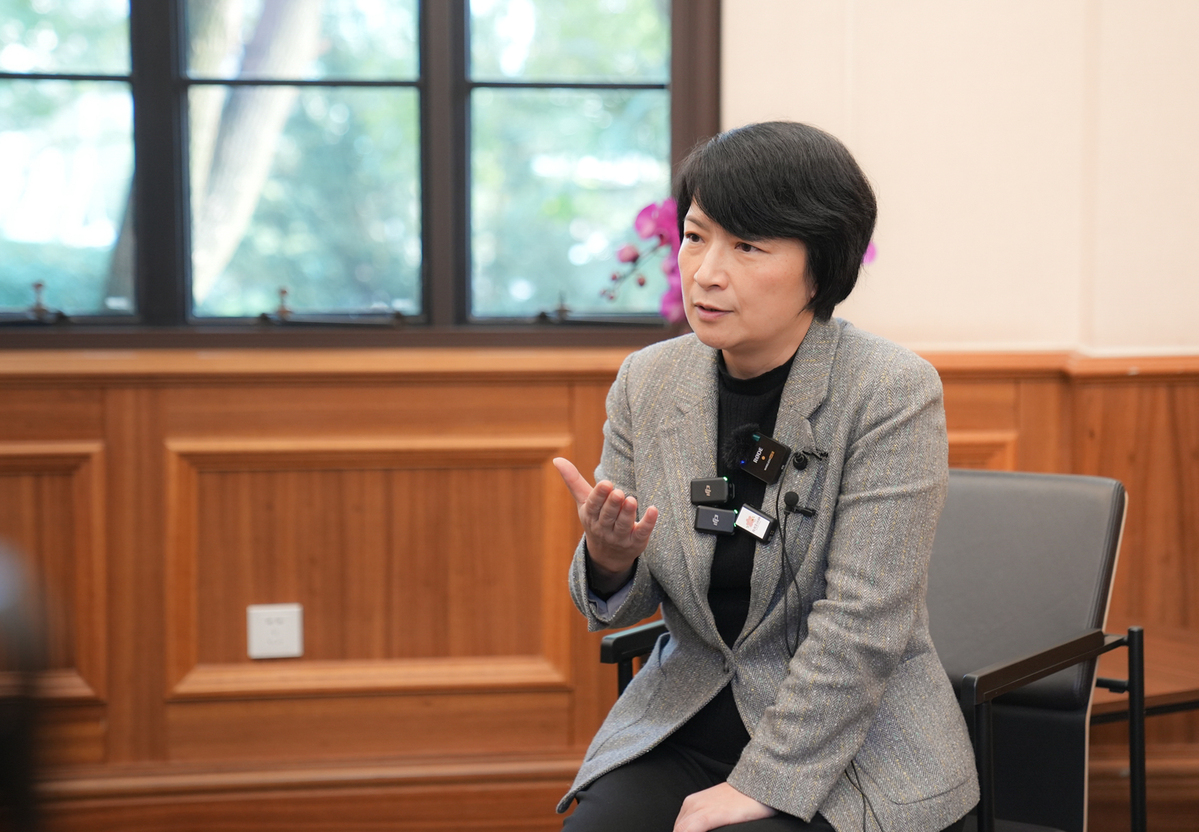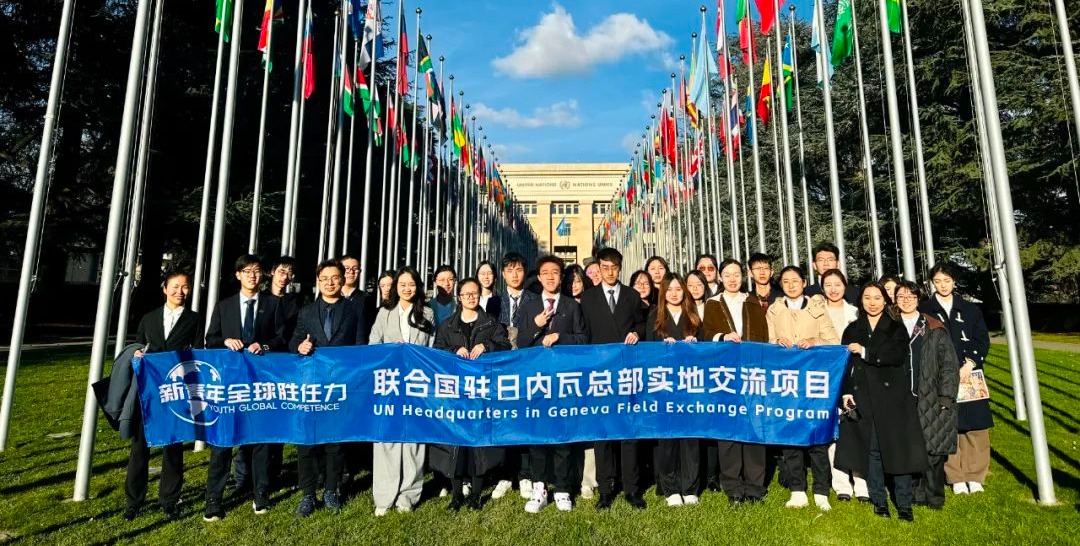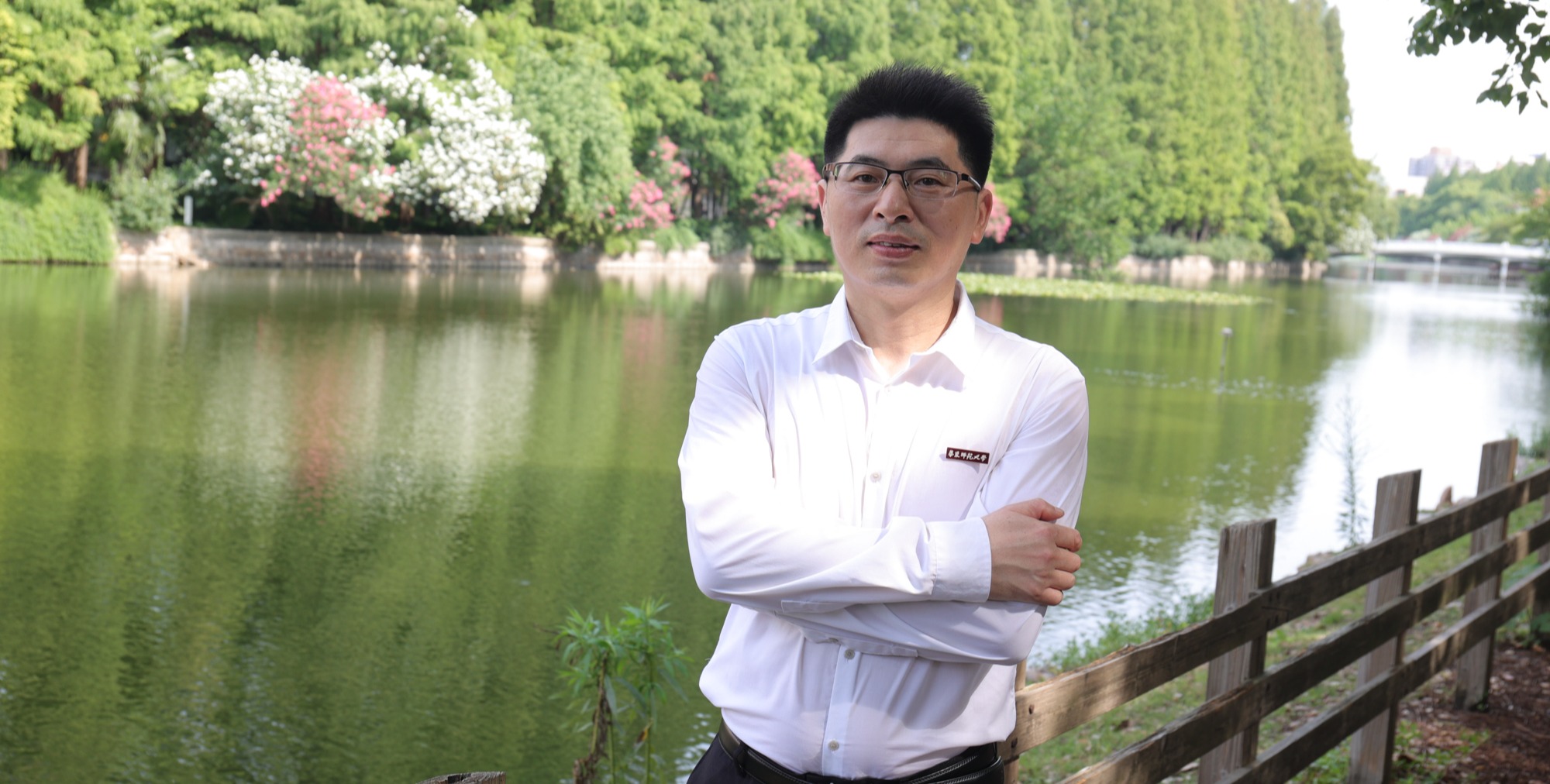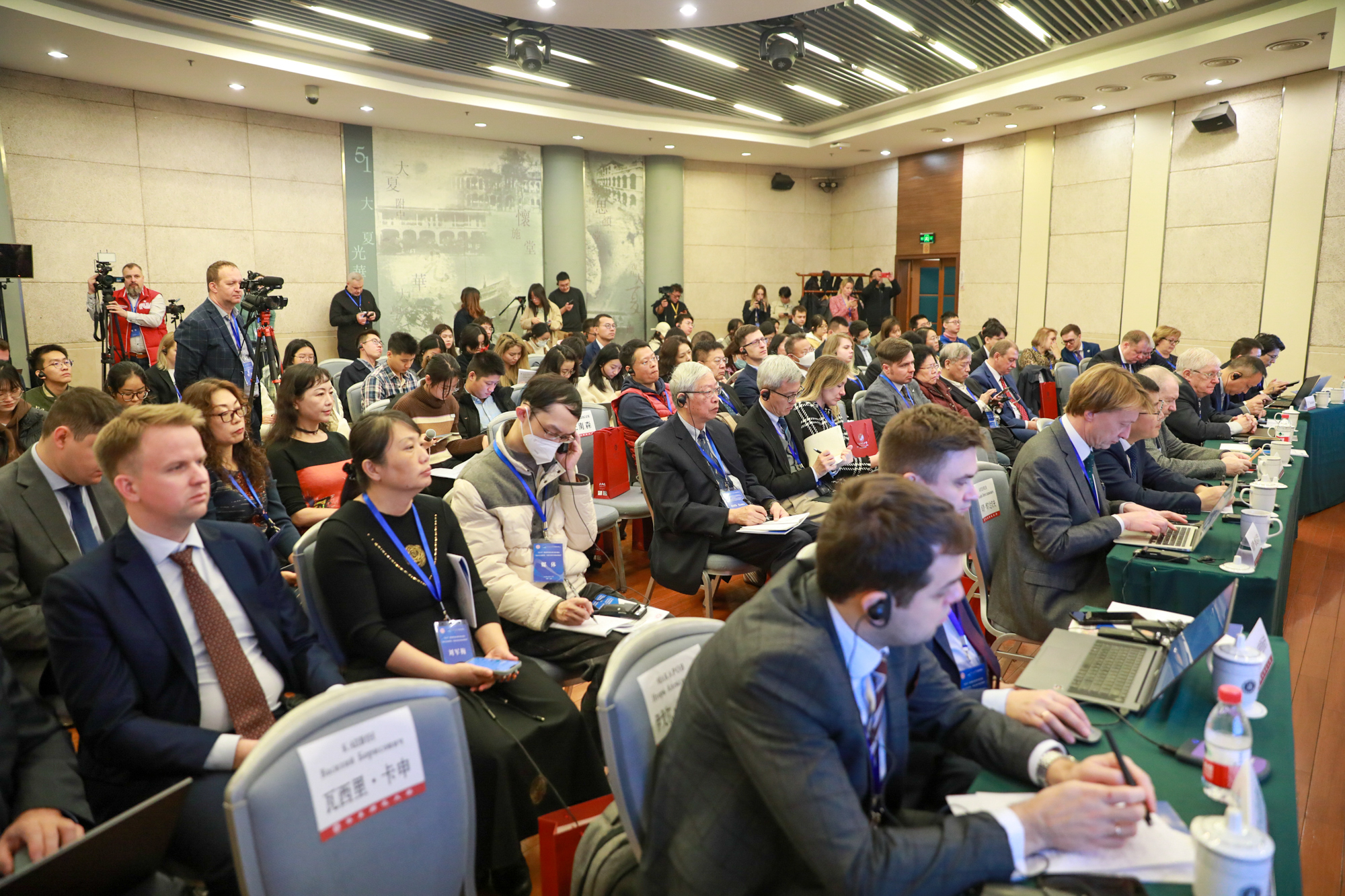# Hot Search #
In his twelfth year in Shanghai, Ni Haoran of Egypt has transformed from a middle-school student who couldn’t communicate a single word or sentence in Mandarin-Chinese to a capable and independent “Gen Z” entrepreneur. Like many young people of this generation, he has witnessed the rapid development of Shanghai over the past decade or so—“from the city-wide traffic network to the convenience of going out without a wallet, from the internationally aligned new education to the increasingly inclusive urban civilization...”
However, Ni is also different from many of his peers, “I am a foreigner, but I aspire to serve as a bridge between this city and foreigners because I understand both foreigners and Shanghai better.”
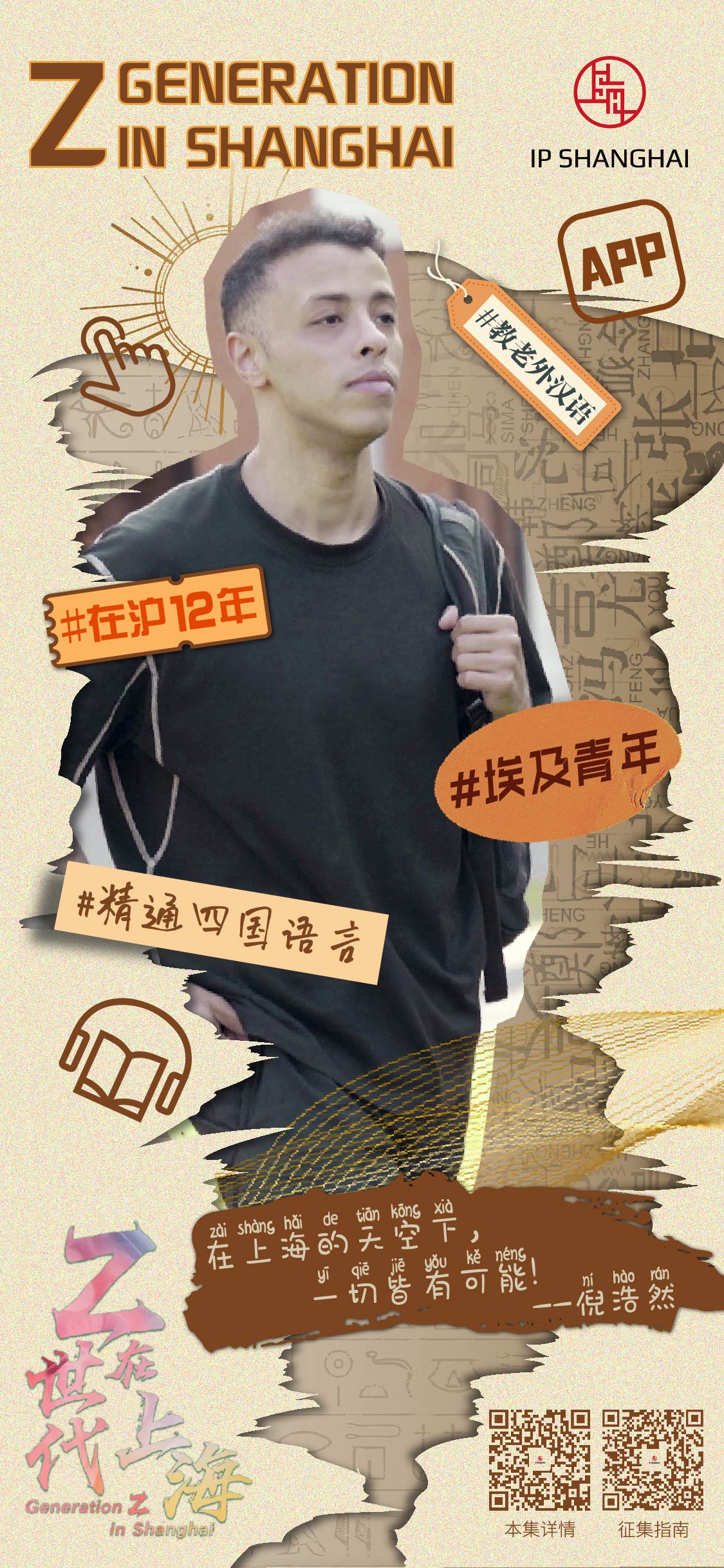
Hello! A newcomer from Egypt
Ni Haoran, a current graduate student at ECNU, surprises people with his fluent Mandarin-Chinese and authentic expressions, even when only hearing his name or chatting via text. It's hard to believe that he is actually a foreigner. He refers to himself as "Little Ni, the Black-skinned Guy", and he is a typical "slash youth" which means entrepreneur, fashionista and social media account manager. In his own words, his social circle is very China-focused.
His “Chinese circle” gradually took shape from his childhood.
Though initially born in Egypt, Ni spent his childhood in Japan and South Korea until he moved to Shanghai with his family after completing his primary school in Korea because of his father’s change in jobs. At that time, his impression of China was only “Kung fu, Jackie Chan and Pandas” and he couldn’t speak a word of Mandarin-Chinese. Nevertheless, when talking about his first visit to Shanghai, Ni Haoran remembers it vividly: “Shanghai, in 2011, was already an international metropolis with a high level of acceptance for foreigners.”
To integrate into the local life as soon as possible and improve his proficiency in Mandarin-Chinese, Ni’s father sent him to a junior public school. His teachers and classmates took special care of this rare foreign student and helped him through the studies.
In the most challenging Chinese language class, the teacher not only provided him with individual tutoring after class, but also explained some writing techniques to him. For foreigners, memorizing ancient poems and even classical Chinese is often the most difficult part. Luckily, the teacher would recite them with him and then have him write them down. Ni expressed his gratitude and determination for learning with the teachers, “I felt that the teachers were so kind to me that I didn’t want to let them down, so I kept working hard”,.
One incident during the lunchtime remains unforgettable to Ni. When he went to a convenience store to buy something, a “not so familiar” classmate directly paid for him. “In Japan and South Korea, such a situation might be less common, but in China, it is very common for friends, or even friends of friends, to be generous and help each other.” The warmth and cordiality between teachers and students facilitated Ni to make many friends and speed up his integration into Shanghai. His first Chinese teacher gave him a Chinese name, and with a proud smile, he said, “Hao Rang Zheng Qi (awe-inspiring righteousness), I really like it.”
Spread Chinese to the world
In his academic studies he progressed step by step and eventually received admission letters from Shanghai Jiaotong University, Fudan University and ECNU as an international student. To be with his sister in school, he chose ECNU in the end, even though his father suggested the popular major of Computer Science. Ni actually gave it a try, but he resolutely changed his study direction because he wanted to continue pursuing Mandarin-Chinese.
“Some friends may be more into delving deep into coding, spending their days writing code, but I prefer to do something different and going out. So maybe I am not very suited for studying Computer Science”, he reflected and found that he was passionate about things closely related to Chinese. Eventually he chose “Business Chinese for Foreign Affairs” as his research direction and continued to delve into it.
While pursuing his major at the university, Ni also learned about the encouragement and support for student entrepreneurship provided by ECNU. Whether in terms of hardware and software, ECNU offered students an all-round entrepreneurial learning and guidance. Putuo District, where ECNU is located, also offers a range of preferential policies. It was seeing so many opportunities that, in 2019, he boldly embarked on his entrepreneurial journey in Shanghai.
From the very beginning, he, together with his classmates from ECNU, established “Huishuo Technology” team with the dream of spreading Chinese to the world. With shared goals and aspirations, they aimed to develop an app based on learning methods for new vocabulary words for Chinese language learners.
About the app, Ni Haoran said, “The aspiration (of entrepreneurship) is to make it easy for more foreigners abroad to learn Chinese. We design the app based on the standards of the Chinese Language Proficiency Test, which foreign students coming to China have to pass; and we want more foreigners to know Chinese, learn Chinese well, study and work here, and understand China better.”
Through the independent development of a vocabulary teaching and research platform, the in-depth study of word boundary segment technology is activated while the construction of the teacher-side SaaS service platform is developed by a tool called “Mandarin Bites”. This online software is specifically for Chinese vocabulary learning and gradually introduces features such as in-depth word search and online testing to provide standardized and highly experiential learning services for Chinese language learners and test-takers worldwide.
This entrepreneurship journey has provided Ni Haoran with valuable life experiences and numerous youth entrepreneurship awards, in addition to strong friendship links with his business partner, Li Haodong. In Ni’s eyes, Li Haodong possesses more business management skills and entrepreneurial mindset than his peers. Ni praised him, saying “Haodong started his business when he was in high school and he has more experience. I might play more of a supporting role, working together with him to dream big and accomplish our vision.”
Four languages in one sentence: Thank you, Shanghai
Ni openly admits that he is a typical “Gen Z”. He said, “We have access to a wide range of information. The rapid development of the Internet and social media, individuals of Gene Z are more inclined to try different things, engage in creative endeavors. They are brave in establishing their own careers.”
Ni has gained significant popularity on his TikTok account, where he shares content related to fashion and styling, which is also one of his hobbies. He aims to showcase and amplify his strengths through these platforms, increasing his personal influence. He said, “(social networks) allow more people to hear my voice and can touch more people, However, at the same time, the network and platforms continuously iterate and change rapidly with evolving technologies. I believe that today’s young people need to embrace the spirit of facing challenges and changes. They need to have a mindset of constant updating.”
He never stops moving forward because he feels that he is in a city that embraces diversity and is taking big strides toward the future. “Whether you’re starting a business or striving for career success, Shanghai can provide you with opportunities to unleash your potential,” said Ni, “regardless of your nationality and even your age, you can come to this city to make a name for yourself.”
After studying and starting his own business in Shanghai, Ni’s attachment to this city continues to grow stronger. When asked what he would say to this city, he responded: “Let me think…Yes, I want to say it in four different languages: Thank you, Shanghai!”
Source:IP SHANGHAI
Copy editor: Melody Zhang, Mayfield Joshua Monroe
Editor: Yvaine Lyu
